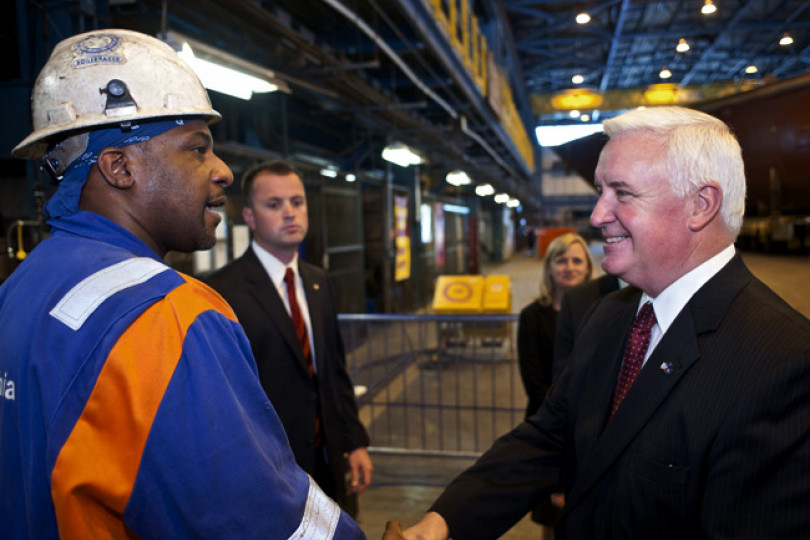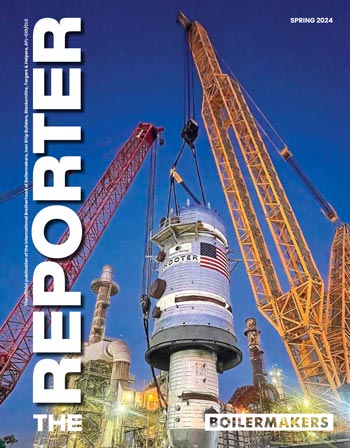Shipyard will build two tankers for Alaska crude transport
AKER PHILADELPHIA SHIPYARD, which employs Boilermakers from Local 19 (Philadelphia) held a document-signing ceremony Sep. 29 for two new tankers that will carry Alaskan crude oil to the U.S. West Coast. The $400 million deal, between the shipyard and SeaRiver Maritime Inc., an Exxon Mobil Corporation affiliate, is expected to involve a work force of more than 1,000 once construction begins on both vessels, according to Aker.
L-19 President Dave Gaillard said the contract is welcome news, as new orders have been slow in coming over the years. “This means a lot to our lodge and to Philadelphia, and the broader region,” he said. “We’ve been going through layoffs for a while. The majority of our people are being called back.” Construction could begin by mid-2012.
International Rep Phillipp Evans, who services L-19, said the Boilermakers’ Department of Government Affairs has been directly involved with local, state, and federal officials to keep the shipyard afloat during lean times. “Philadelphia Mayor Michael Nutter and Governor [Tom] Corbett also deserve credit for their role,” he said. “Nutter, especially, has always been there for the shipyard.”
The 820 foot long, 115,000 deadweight ton tankers will feature double-hull construction and will be equipped with advanced communication capabilities and energy-efficient engines.
Both tankers are scheduled for delivery in 2014. L-19 members are currently building two 46,000 deadweight ton product tankers, which are scheduled for completion in 2012 and 2013 respectively.
Aker Philadelphia Shipyard is an affiliate of the Norwegian-based Aker family of global companies.
Local 19 was chartered as a shipbuilding and marine lodge in 1914. The lodge constructs ships covered under the Jones Act, which requires that ships traveling between two U.S. ports be built in the United States and owned, flagged, and crewed by U.S. citizens.







